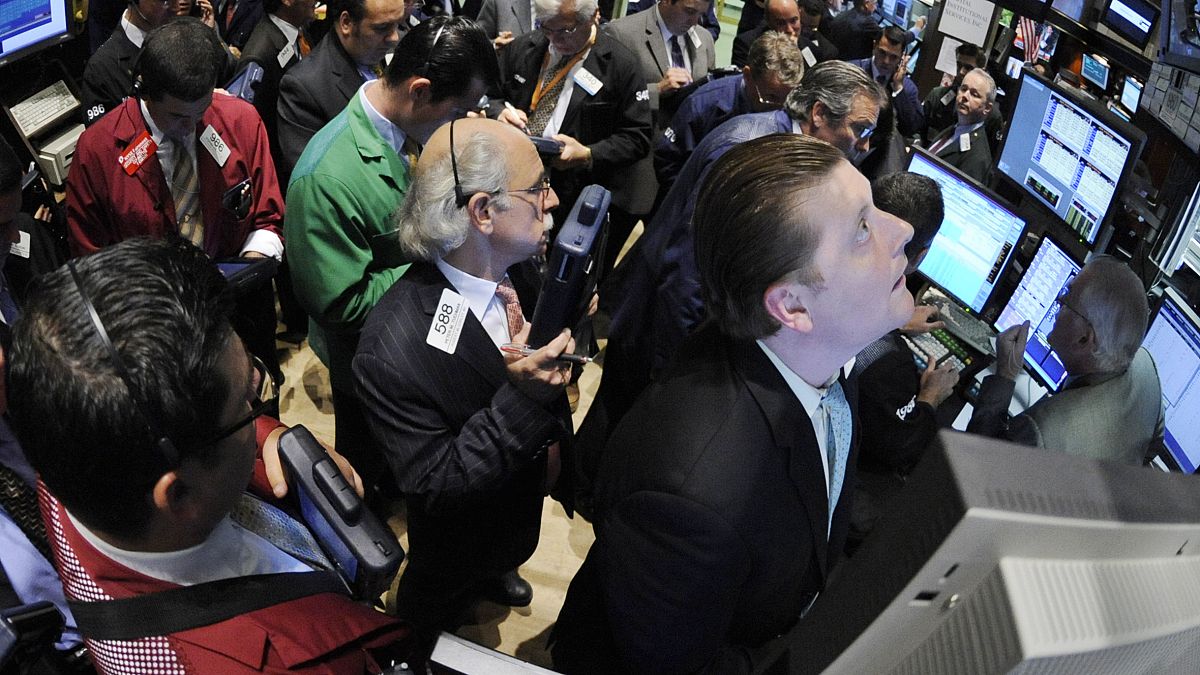Cooling inflation in Europe and softening US economic data heightened expectations of rate cuts by central banks, fuelling a stock market rally on both sides of the Atlantic.
Global government bond yields fell amid cooling inflation data from the eurozone and weakened US economic data on Wednesday. The decline in bond yields reflects growing expectations for central banks to lower interest rates, which boosted stock markets on both sides of the Atlantic. The outperformance was particularly evident in mining and stocks due to a surge in commodity prices, spurred by a weakened US dollar. Technology shares also performed strongly amid the ongoing AI frenzy.
European stock markets and euro experience rebound
Stock markets across Europe experienced a broad rebound on Wednesday, with the Euro Stoxx 600 up by 0.74%, the DAX climbing by 1.19%, the CAC 40 rising by 1.24%, and the FTSE advancing by 0.61%. The flash monthly CPI in the euro area, as estimated by Eurostat, cooled to 2.5% in June from 2.6% in the previous month. Meanwhile, core inflation, excluding food and energy, rose slightly to 2.9% from 2.8% in May.
Although the inflation reading may not be convincing enough for the ECB to deliver the second rate cut this month, bond traders project more cuts this year. Government bond yields declined in major economies, boosting risk-on sentiment across the continent.
Meanwhile, the French stock market continued to surge on reports that the far-right is unlikely to win an absolute majority in the election. France’s 10-year government bond yield fell for the second consecutive day, down by 7 basis points, or 0.07%, to 3.25%. The CAC 40 rose by 2% from the week’s low to close at 7,632 on Wednesday.
The UK markets also climbed ahead of its general election taking place today. The outperformers were among those big mining stocks, such as Rio Tinto, Glencore, and Anglo American, up 3.08%, 2.31%, and 1.23%, respectively on the London Stock Exchange.
The euro strengthened against the US dollar to its highest level in nearly a month, reaching just under 1.08, as the dollar softened following the release of the Federal Reserve’s (Fed) June meeting minutes.
From a technical standpoint, major European benchmark indices exhibited signs of a bottom-up pattern, indicating that investors may have looked past recent political uncertainties. Stock markets appear to be absorbing the risks associated with the French elections and refocusing on economic factors.
Wall Street hits a new high following Fed meeting minutes
The US stock markets reached new highs ahead of the Independence Day holiday. The S&P 500 rose by 0.51% to 5,537.02, while the tech-heavy Nasdaq index climbed by 0.88% to 18,188.30. The rally was mainly driven by a decrease in government bond yields following the release of the Fed meeting minutes and softened US economic data, which bolstered expectations that the central bank may implement more than one rate cut this year. According to the CME FedWatch tool, the Fed is expected to lower interest rates in September and December, despite only one cut projected by the bank in June.
The ADP non-farm payroll report indicated that the country added fewer jobs than expected in June. Meanwhile, the US services PMI unexpectedly contracted sharply last month. Additionally, the Fed meeting minutes revealed that the central bank required more evidence of US inflation returning to 2% before considering a rate cut. Fed officials were divided on the duration of maintaining high interest rates. However, the committee noted that risks to achieving its employment and inflation objectives had become more balanced.
Both European stock markets and Wall Street could sustain their upward momentum on the back of increasing expectations for central banks to embark on a rate-cutting cycle this year. However, political uncertainties in France and the UK may temper the rally, potentially causing European markets to underperform compared to their US counterparts.

